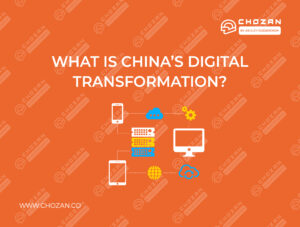Alibaba offered the tech world a double-whammy in the last fortnight, first with the ceremonial passing of the torch from chairman Jack Ma in a heartfelt open letter, then with the unexpected signing of a joint venture arrangement with Russia’s leading tech player a week afterwards.
The deal with Mail.ru — a wide-reaching media conglomerate that could be described for the sake of drawing a parallel as “the Russian Alibaba” — may not have taken over the headlines with the same potency as Ma’s retirement, but based on what it could mean for the parties involved, it probably should have.
Fittingly announced on the sidelines of the Eastern Economic Forum in Russia’s coastal military base/commerce hub of Vladivostok, the deal marked the conclusion of two years of negotiations between the two companies in what will push Alibaba towards its next stage in conquering the Russian retail market.
The JV, to be branded as AliExpress Russia, promises to be a one-stop shop for Russian consumers, the vast majority of whom have at least some form of contact with Mail.ru via one of its online outlets. It will essentially be a localized version of Alibaba’s international delivery service AliExpress, with a big bunch of add-ons covering communication and social media as well as gaming.
By merging operations with a local player, Alibaba will in effect absorb Mail.ru’s 100 million-strong customer base across the former Soviet region into its formidable technology and retail infrastructure, creating what is likely to be the largest entity in Russian e-commerce history, valued at up to $2 billion.
“We see this is definitely, both for the Russian and the global technological market, a truly historic deal,” Mail.ru CEO Boris Dobrodeev told Russian business publication Kommersant.
AliExpress Russia will also include under its name Alibaba’s Tmall platform, and Mail.ru’s relatively small-scale Chinese goods marketplace Pandao will be incorporated into the business as well.
One of Russia’s major telecom providers, Megafon, will be involved in the JV in an as-yet-unspecified capacity, as will the Russian Direct Investment Fund, Russia’s sovereign wealth fund. From the announcement, we know that Megafon is selling its 10% stake in Mail.ru to Alibaba for $500 million, though the sum of its investment in the venture has not been disclosed.
In fact, much of the public rhetoric surrounding the deal was a bit elliptical. Writing on its own-brand Alizila blog, Alibaba wrote that “the parties will inject capital, strategic assets, leadership, resources, and expertise into a joint venture that leverages AliExpress’ existing business in Russia.” The company added that those who will head the JV will be announced by the end of the year.
The final make-up of AliExpress Russia is estimated to be: Alibaba Group (48%), Megafon (24%), Mail.ru Group (15%), and the RFID (13%).
An important partnership
Alibaba’s ambitions in Russia are not a recent whim, although it might not appear to be a key target market. Last year the Chinese tech giant chose to abandon its pursuit of a deal with Russia’s largest retail bank, Sberbank, with which it hoped to leverage the bank’s vast customer database.
In fact, two of the retail components of the new JV with Mail.ru, namely AliExpress and Tmall, have been delivering to Russian homes since 2015 and 2017, respectively. The former is a popular household brand name in Russia’s larger cities, although few are aware of the company’s Chinese management.
Teaming up with a domestic big dog like Mail.ru (or Sberbank or Yandex) is the natural next step for Alibaba in Russia. Instead of just shipping to folks in China’s vast northern neighbor, it can now take advantage of the infrastructure their partners have already established.
Probably more so than other players, Mail.ru makes sense as a prospective collaborator given its similarly voracious attitude towards online-service provision. Just as how Alibaba is establishing a presence in every corner of the Chinese consumer space in its ongoing tussle with the likes of Tencent, Mail.ru has likewise cultivated platforms to which most online activity in Russia can be traced back.
As the name implies, Mail.ru dominates Russia’s email domain, and two of the country’s most popular social media platforms, Facebook-like Vkontakte and reunion site Odnoklassnikys (“Classmates”), belong to the same owner as the conglomerate. Massively popular food-delivery app Delivery Club, ride-hailer Citimobil – all Mail.ru. It also offers an online medical advice service and the Netflix-style movie and TV-streaming site Kino.
Russian businesses likely let out a clandestine sigh of relief once the deal was inked. The country’s economy has been increasingly neglected by foreign investors ever since the Ukrainian crisis in 2014, save for the occasional headline-grabber involving Gazprom or Rosneft and several billions of dollars.
Much needed trade
The once-hopeful “pivot to Asia” strategy in the wake of West’s sanctions has not been able to compensate for the loss from European trade, despite a steady uptick in trade with China and other regional players like India and Vietnam.
The nature of the trade, however, has been imbalanced and constricted, with little of it trickling down to Russian consumer exports. In 2017, Chinese imports made for one-fifth of Russia’s total, according to consultancy EY, whilst Russian contributed just one-tenth to China’s annual intake. Of this revenue, nearly two-thirds went into the pockets of Russia’s national fuel companies.
“The Russian e-commerce market has huge potential. Furthermore, the partnership will open up to Russian producers opportunities to export to new markets,” said Alisher Usmanov, founder of USM, the operating company behind telecom provider Megafon.
The restless appetite of Russian producers to get shipping to China most recently inspired the rolling-out of Dakaitaowa (a transliteration of 打开套娃, or “open the Russian doll”), a state-backed initiative set up with the company mission of promoting the “import of high-quality Russian food products,” such as beer, coffee, caviar, and honey. It also counts Mail.ru among its backers.
The timely arrival of Alibaba, which can now sit proudly as a globally-known super brand, offers a stamp of legitimacy to Russia’s status as a developing economy with potential rather than just the world’s gas station.
“As you know, Alibaba’s market cap is more than $420 billion dollars,” said CEO Dobredeev, “so a partnership with such a powerful player on the world stage is, of course, important and will help Russia achieve the breakthrough it plans in building its digital economy.”
In fact, what Alibaba will offer on the hardcore tech side of things has arguably raised the most excitement among Russians involved in the deal, especially given the nation’s deep pride in its capabilities in IT and engineering.
“…[All] the data Alibaba is going to use will be processed and stored on Russian soil, and the JV is going to use homegrown payment systems,” Dobrodeev added. “We will also be working with partners in the deal to build large centers for the development of AI and data processing in Russia.”
However, current figures suggest there’s a lot to be done. E-commerce penetration in Russia still only hovers near 3%, a long way behind China’s 15%, with the latter belonging to a population over ten times as large.
The next piece
Russia is the next piece in Alibaba’s wider scheme to move into underdeveloped consumer markets where for one reason or another the American e-commerce giants have yet to plant their flag. In June, the company posted that it had bought a stake in Turkey’s local leader Trendyol while Amazon still fumbles with the launch of a Turkish service. In India too, Alibaba recently invested in digital payments platform Paytm, granting in exchange access to its cloud infrastructure.
“Alibaba is a very smart company. They aren’t trying to go global everywhere at once,” according to Ashley Dudarenok, Chinese digital marketing consultant and herself a Russian national. “Alibaba chooses a market very carefully and localize their services well.”
“Alibaba has been the company in China’s e-commerce market. It basically made it from scratch. With India and Turkey, they are aware that there is not much infrastructure there just like in China before, so they know exactly how to deal with this sort of aspirational consumer-base. Along with countries in southeast Asia, Russia is one such market,” said Dudarenok.
It may still be poor by Western standards, but with a population of over 140 million people, Russia is still the largest “European” country and a market worth getting in on. An emergence of a middle class in the last two decades is set to bloom and Alibaba are planting their seeds now, ready to cash in when the consumer base matures.
The agreement may have coincided with the loud noises of war games and grand reciprocal endorsements by the Chinese and Russian leadership, leading some to think this was just another level for the two countries to parade their deepening friendship. But geopolitics aside, in Mail.ru, Alibaba may just be on to a winner.
[I contributed quotes & oppinions for this article, Tim Ang has written it. A version of this article first appeared on China Economic Review.]
To get deeper insights into Chinese social media marketing and utilizing it to serve your business, join ChoZan, a training and resources platform for Chinese social media marketers.
Please follow our official WeChat account to get more updates about the latest news, feature updates and case studies.

Share this article on your favourite social media
Read more related posts
-
Top 10 Social Commerce Innovations from China's FMCG industry
China has become the world’s second-largest FMCG market and the largest ecommerce in the last decades, thanks to its rapid expansion. According to the China Internet Network Information Center, 27.3%…
-
5 Tips on How to Establish the Right Product Strategy in China
If you're planning to enter the Chinese market, you might wonder, what can you do to maximize the success of your approach. Christine Tan, the Business Development Manager of FirstShotz,…
-
China Leaps Into the Brave New World of New Retail
Alibaba is playing a key role changing the face of retail in China and, probably, the rest of the world. During November’s Double 11 Global Shopping Festival, or Single’s Day,…
-
Top 10 Social Commerce Innovations from China's FMCG industry
China has become the world’s second-largest FMCG market and the largest ecommerce in the last decades, thanks to its rapid expansion. According to the China Internet Network Information Center, 27.3%…
-
Ecommerce and Big Platform User Growth in a Post-coronavirus China
The coronavirus pandemic has presented huge obstacles as well as some opportunities and necessary shifts for business. What’s the current state of China’s ecommerce and big platform advertising? Read on…








